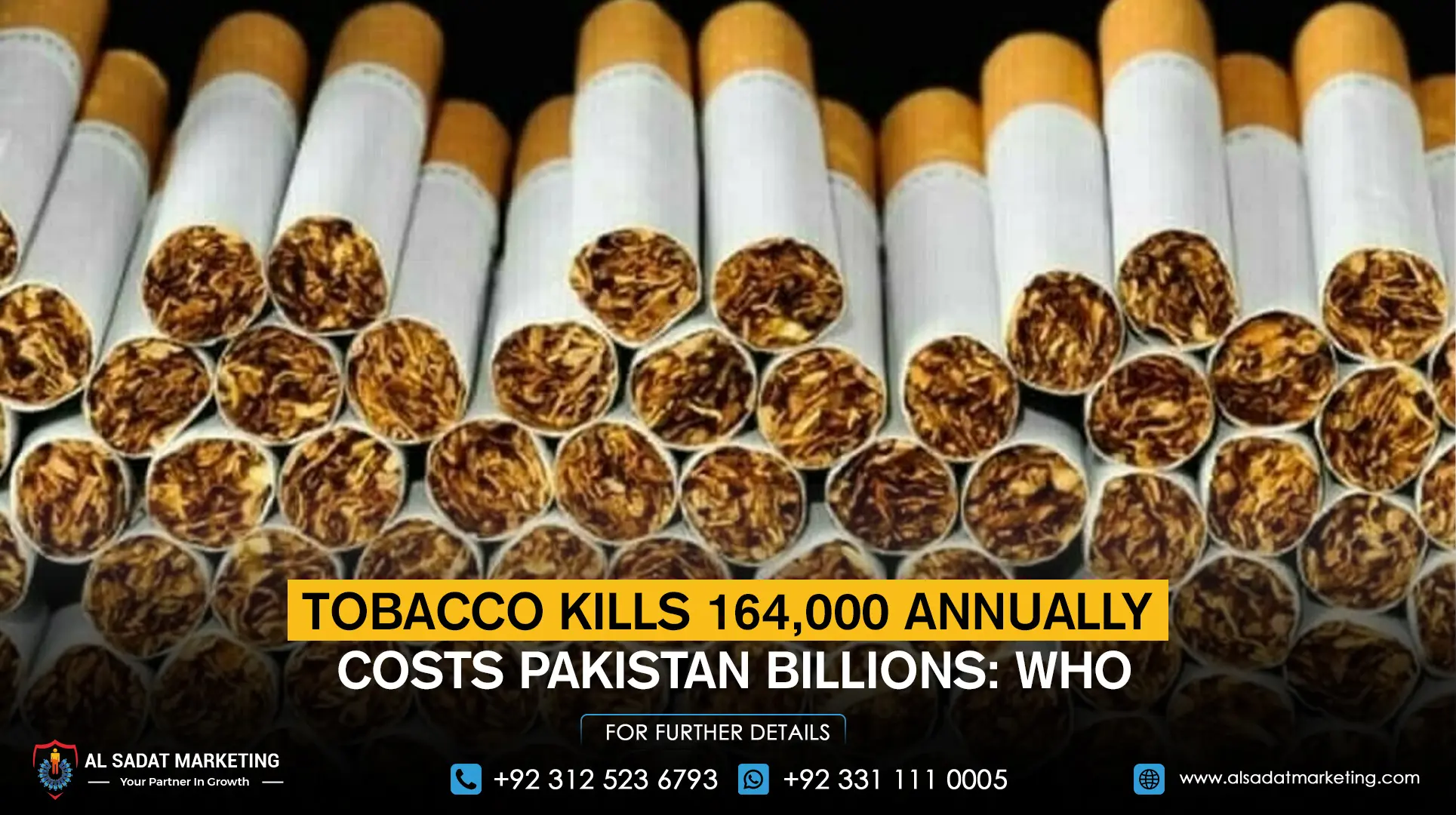The World Health Organization (WHO) has warned that tobacco is causing serious harm in Pakistan, leading to 164,000 deaths and costing the country around $2.5 billion every year.
This warning comes just before World No Tobacco Day, which is marked on May 31. WHO is urging the government of Pakistan to take stronger action, especially by raising taxes on tobacco products to help save lives and protect public health.
Higher Taxes Help Reduce Smoking
The WHO says that increasing taxes on tobacco is one of the best ways to reduce smoking. It not only helps people quit, but also brings in more money that the government can use for health and development.
In 2023, after Pakistan increased cigarette taxes, smoking went down by more than 19%. About 26% of smokers said they smoked less. At the same time, the government collected more money from cigarette taxes—Rs237 billion compared to Rs142 billion the year before, a 66% increase.
Tobacco Still Too Cheap in Pakistan
Despite this, the WHO says tobacco is still too affordable in Pakistan. The last tax increase was in February 2023, and current taxes are still lower than what the WHO recommends (75% of the retail price).
Tobacco Harms Everyone
WHO’s representative in Pakistan, Dr. Dapeng Luo, said all tobacco products are harmful.
“There is no safe tobacco product. Tobacco kills half the people who use it. It also harms non-smokers and puts pressure on our hospitals and healthcare workers.”
He said tobacco is not only a health issue but also a burden on the economy and future generations.
WHO’s Support for Pakistan
Pakistan has been part of the WHO’s global tobacco control treaty since 2004. WHO continues to support Pakistan’s health ministry and tax department with advice on tobacco policy and tracking systems.
As World No Tobacco Day approaches, WHO is asking the government and the public to take stronger steps to reduce tobacco use in the country.










